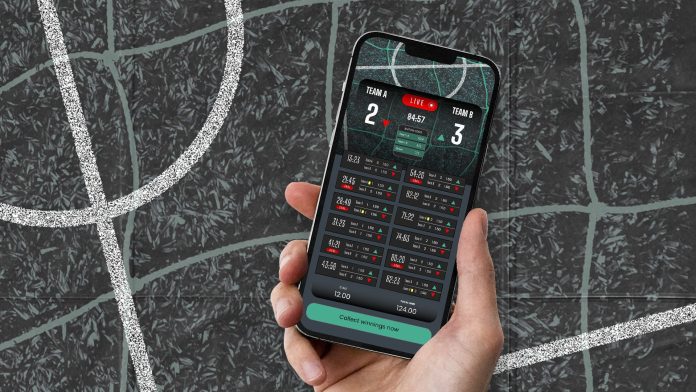
Before you place a bet on any soccer match, it’s essential that you take time to understand what the odds and the implied probability rate (the actual chance of winning, based on the odds) are trying to tell you.
There are three main types of betting odds formats across the world, and in South Africa, the decimal odds format is commonly used on today’s best iGaming sites.
Here is a brief guide to understanding soccer betting odds in South Africa.
What are the three different betting odds formats?
The three main soccer betting odds most commonly used on betting sites around the world are American/moneyline odds, UK fractional odds, and European decimal odds.
American/moneyline odds are mainly used in North America, specifically in the United States. Canadians also use American/moneyline odds, but many regions use decimal odds. Decimal odds are also used in most other parts of the world, including South Africa.
Fractional odds (aka traditional odds) are only used on betting sites catering to customers in England, Scotland, and Wales. Let’s take a quick look at three examples with this simple odds conversion table. We have also included the implied probability rate for each example:
- Example 1: American/moneyline odds: -10,000. Decimal odds: 1.01. Fractional odds: 1/100. Implied probability rate (IPR): 99%
- Example 2: American/moneyline odds: +100. Decimal odds: 2.00. Fractional odds: 1/1 (aka EVENS). IPR: 50%
- Example 3: American/moneyline odds: +100,000. Decimal odds: 1,001.01. Fractional odds: 1000/1. IPR: 0.1%
In other words, although no bets are ever guaranteed in soccer betting, you can safely say that example 1, a bet which is priced at 1.01 with a 99% chance of occurring, will almost certainly happen.
With example 2, you have a 50/50 chance (50% IPR) of your bet winning when priced at 2.00, so it’s a risky bet. Finally, with example 3, you have zero chance of winning a bet which is priced at 1,001.0 (0.15 IPR).
Outsider bets with long odds (aka longshots) don’t always lose. For example, throughout the history of the UK’s iconic Grand National Horse race, a total of five runners have won when they were priced at 101.00 (decimal odds), which is +10,000 in American/moneyline odds and 100/1 in fractional odds.
The five horses that won the Grand National with these odds (Mon Mome, Foinavon, Caughoo, Gregalach, and Tipperary Tim) only had a 1.00% chance of winning the race before it started. This is a mega-risky bet, which doesn’t happen often, but it paid off for hundreds of lucky punters.
How much can I win from placing bets?
The amount of money you can win depends on the odds and how much money you wager. For example, If you placed a $/€/£2.00 bet (which is approximately R50.00) on any of these horses and won, your total returns would be $/€/£202.00 (approx. R5,000).
This would include your initial stake of $/€/£2.00 returned, plus a $/€/£200.00 (approx R4,800) profit.
How would a soccer bet look?
A soccer bet would work in the same way. Let’s take a quick look at how a betting market might look for the AFCON (African Cup of Nations) soccer tournament.
The current odds-on favourite team to win AFCON outright are Senegal. At trusted South African online sports betting sites like 10bet, you’re currently looking at competitive odds of around 4.50 (decimal odds) for this West African nation to win the tourney outright, which means a 22.20% implied probability rate.
If you were to bet the same amount, $/€/£2.00 (or R50.00), right now with these odds, and Senegal go on to win, you would be looking at a total return of $/€/£9.00 (including your $/€/£2.00 stake returned and a $/€/£7.00 profit).
Do I have to bet big to win big?
Yes and no. If you want to place more informed bets that are more likely to win but don’t have a huge amount of money to bet, then it will take time to build up your bankroll.
In other words, placing a bet on something that’s likely to occur won’t return much of a profit, but at the end of the day, a profit is still a profit. Placing a bet on a longshot (outsider) like Mozambique to win AFCON, who are currently priced at around 501.00 (only a 0.2% IPR), would pay huge, but it’s not likely to happen.
Therefore, if you placed a $/€/£2.00 R50.00) bet right now on Mozambique to win, and by some strange twist of fate, they get all the way to the final and win, your total returns would be $/€/£1,002.00 (approx. R24,000).
Longshot/outsider bets may seem tempting because of the huge profit margins, but experienced bettors will often say this type of betting is just a waste of money.
Final note
Professional gamblers who understand the sport inside out will often bet vast sums of money, say $/€/£500 (R12,000) on a ‘dead cert’ – something that’s almost guaranteed to occur, only to win a small profit of $/€/£100 (R2,400) profit. Again, it’s risky because it only takes one lost ‘dead cert’ bet to lose a huge chunk of your winnings.
Before betting, remember to do your research on the teams/players/injuries/previous results/latest stats, and any other important stats you can get your hands on and only spend money you can afford to lose.
Try to avoid placing bets with long odds, and don’t forget that building up your bankroll with high IPR odds will take time. For some people, sports betting is a marathon, not a race.

